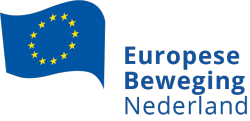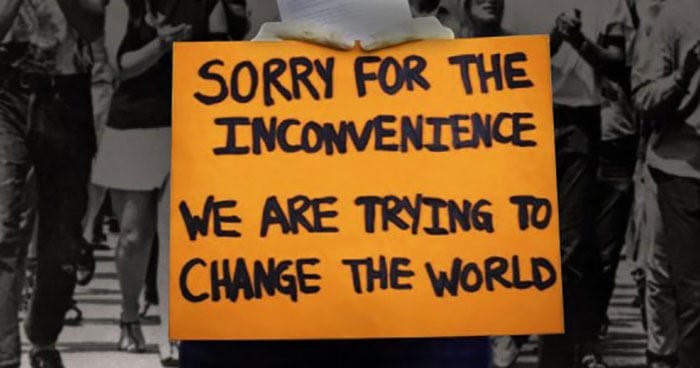Senses of security, sources of inspiration, forms of inclusive action
With the presidential election results in France leaning towards a victory of Emmanuel Macron in a couple of weeks, and the elections in other European countries (Germany, the UK, Italy) on the horizon, the comments on the state of the European lands are abundant and critical. Across the board, we witness disillusionment with established politics, which in France expressed itself by two ‘outsiders’ – Macron and Le Pen – winning the first round and sidelining the two political families, which for years had called the shots.
En Marche is the name of Macron’s movement for France. This sounds pleasantly energetic, but the big question – for France as for the rest of Europe – is: En Marche, towards what?
Much public debate seems to be devoted to an endless reiteration of the rather divergent expressions of public dissatisfaction. The spotlights are on people’s anxieties about their economic prospects in a globalized world, their unease with cultural diversity, the complaints about too many ‘outsiders’, or the popular anger at the complacency and lack of empathy of which they accuse those in power. Such analyses, however understandable and justified, are not very satisfactory, for two reasons. First, they are rarely carried to their ultimate, very painful conclusions regarding everybody’s exact responsibilities for the status quo. They tend to deteriorate into self-righteous hackling which detracts from the constructive alternatives that are – ironically – everywhere in the making.
We live a time of growing complexity, enhanced by a tremendous acceleration in communication and the mobility of money, markets and people. Numerous publications have documented the tensions and uncertainties caused by all this turbulence. They deliberate on who in the current dynamics actually gain power, who are loosing out and who – systematically – lag behind.
There is no shortage of diagnose. But the therapies are tough and thus postponed.
In line with our civic tradition and mission, the EBN has decided to focus specifically on exploring new possibilities for European cooperation. We work from a civic perspective, together with other European civic movements. We consciously connect ourselves with constructive European alternatives.
This has proven an inspiring exercise. There is a rich arena of such vital alternatives – some already quite developed, some in statu nascendi – which one could categorize under three broad categories.
- We see a range of activities, which address people’s senses of security in the broadest sense of the word. One can for instance think of all the new actions to secure our planet, the enthusiastic explorations of more sustainable economic models, the attempts to arrive at new socio-economic and social contracts and formulate new equity agendas.
- A second group of initiatives aims to articulate new sources of inspiration, new images and narratives, in the arts, in literature, and in many novel cultural alliances. You can e.g. also think of the exciting exchanges between people working ‘sharing economy’.
- And there are movements which focus on establishing new forms of action, new practices, such as is e.g. the case in the new network democracy initiatives that spring up in many places, or in the attempts to connect citizens across a wide array of subjects that affect us all..
From a basic awareness that it is vital to be ‘rooted’, ‘connected’, ‘inclusive’, many of these initiatives start locally. But thanks to social media, much quicker than before one can see people engage in building larger, national and international networks of enthusiastic citizens. Their vanguard frequently challenges established institutions. But in a growing number of cases they also interact creatively with established institutions, which recognize that time is up for old ways of going about their business. Think of the sustainable energy coalitons, for instance.
Looking at the European arena this way, it is clear that besides a politics of fear and a politics of muddling through – which still dominates the pages of our newspapers but is detrimental to the future of Europe – there is a politics of new vitalization in the making, still trying to find its solid forms, but hopeful. Here, a smart dialogue between the old ‘builders of Europe’ and the inspiring new initiatives may be of immense value. The EBN is well positioned to input its members’ wide experience into these new arenas. As partners in dialogue, in new coconstruction.
So, some wish to declare Europe moribund? Vive l’Europe! This is the time for Europe’s citizens. En marche!
Godelieve van Heteren, chair European Movement Netherlands

